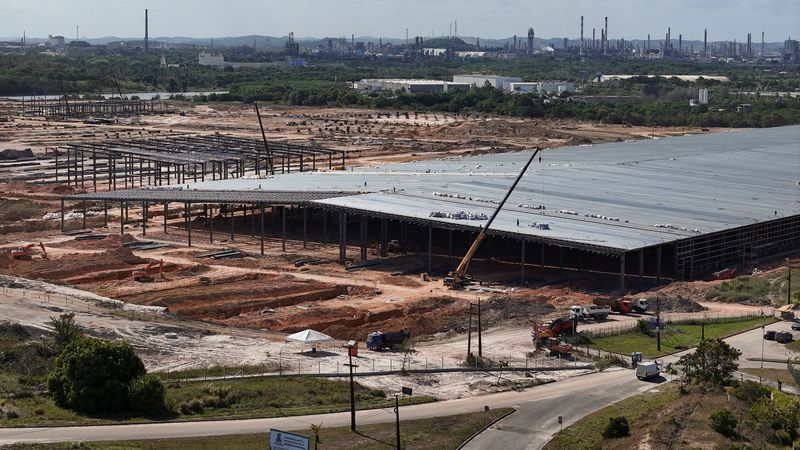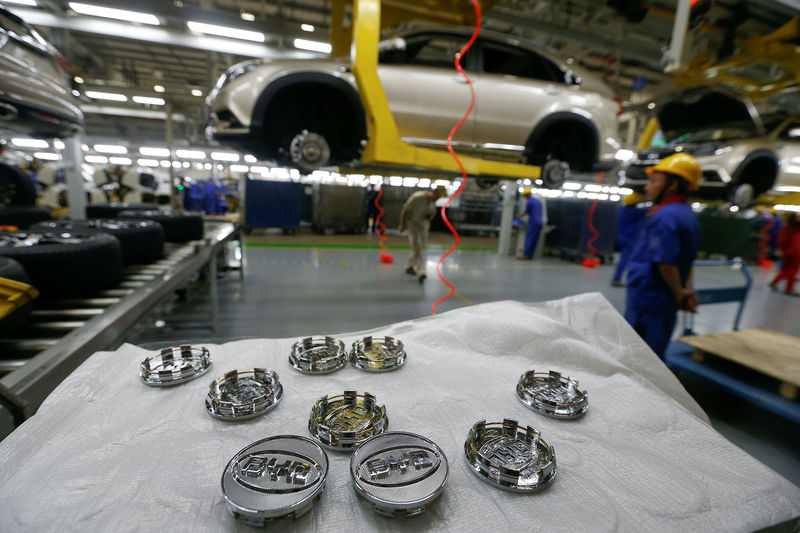By Fabio Teixeira
RIO DE JANEIRO (Reuters) – The 163 Chinese workers found by Brazil’s labor ministry in what it described as “slavery-like conditions” at a factory construction site owned by Chinese electric vehicle maker BYD (SZ:) have been removed and taken to hotels. , while officials negotiate with BYD and the Jinjiang Group on further measures to protect them, authorities said.
Growing controversy in the automaker’s largest overseas market has put a spotlight on the working conditions of immigrants in the northeastern Brazilian state of Bahia. A deal with labor prosecutors involving BYD and Jinjiang Group could be signed as early as January 7, when they are scheduled to meet.
Earlier this week, the labor prosecutor’s office described the workers, who were hired by Chinese construction company Jinjiang Group, as victims of human trafficking. The company had withheld the passports of 107 employees, investigators said.
Investigations into slavery could have powerful consequences for employers in Brazil, including limiting their access to bank loans.
Jinjiang has denied all allegations, while BYD said it has severed ties with Jinjiang. Both companies are cooperating with authorities on the investigation.
Jinjiang said in a social media post reposted by a BYD spokesperson that describing workers’ conditions as “slavery-like” was inaccurate, while a BYD executive said media and other groups “intentionally target Chinese brands and the country and undermined the economy.” relationship between China and Brazil.”
If the two companies are accused by labor inspectors of subjecting workers to slavery-like conditions, they could be added to Brazil’s so-called “dirty list” – a public list of employers held liable for such charges.
Although company names are only added to the list after all appeals have been exhausted, which can take years, once a company is listed it remains there for two years. In addition to the significant reputational risk posed by the ‘dirty list’, companies appearing on it are also prohibited from obtaining certain types of loans from Brazilian banks.
Companies can avoid being placed on the ‘dirty list’ by signing an agreement with the government, committing to change their practices and compensate workers whose rights are violated.
Companies and executives are also confronted with legal action. Prosecutors who oversee labor cases can sue companies found to have violated workers’ rights unless they agree to pay compensation to the Brazilian government and victims.
In addition, federal prosecutors can also bring criminal charges against executives. Charges of human trafficking and keeping workers in slavery-like conditions carry prison sentences of up to eight years.
Federal prosecutors have already asked labor authorities to share the evidence they have collected against BYD and the Jinjiang Group, according to a statement from the labor ministry on Thursday.
NEGOTIATIONS BEGIN
Labor inspectors are now negotiating with the companies over compensation for the workers whose rights they believe have been violated. This includes payment for missed wages and severance pay. The workers will also receive unemployment benefits.
“The efforts of government authorities at this time are focused on the victims and guaranteeing the victims’ rights,” said Mauricio Krepsky, former head of Brazil’s Inspection Division for the Eradication of Slave Labor (DETRAE), a government agency staffed by labor inspectors.
Victims of human trafficking can choose to stay in Brazil or return to their home country, said Ludmila Paiva, co-founder of I-MiGRa, a nonprofit organization that develops projects and research on human trafficking.
At a meeting on Thursday, BYD has already agreed to purchase tickets and reimburse up to $120 in travel expenses for the return trip to China of seven employees who will return on January 1, according to a statement from Brazil’s labor prosecutor’s office.

Negotiations between labor authorities and companies suspected of subjecting workers to inhumane conditions could take months, depending on the complexity of the case, the number of victims involved and whether or not the companies cooperate with authorities, experts told Reuters .
If the companies are sued, it could take years before their names are added to the list, as companies can appeal internally to the government or file lawsuits to keep their names off the register. (This story has been refiled to move the phrase “labor prosecutor” from the beginning to the end of paragraph 16)


